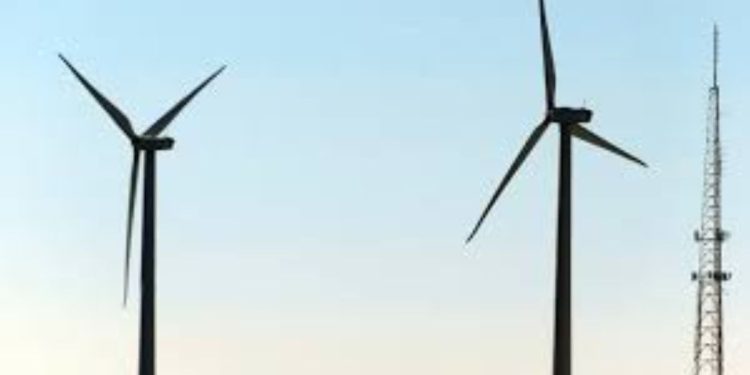Orsted, a Danish wind farm developer, will pay New Jersey $125 million to settle claims over the firm’s cancellation of two offshore wind farms last year, which is slightly more than a third of what the business was previously obliged to pay.
The state’s Board of Public Utilities announced Tuesday that New Jersey and Orsted had reached an agreement to settle allegations stemming from the company’s decision to abandon two wind farms off the state’s southern coast in October.
The state announced that it will use the $125 million it will receive to finance investments in wind energy facilities, component manufacturing facilities, and other sustainable energy projects.
Before the projects were abandoned, Orsted provided a $100 million assurance that one of them, Ocean Wind I, would be completed by the end of 2025. It was also required to provide an additional $200 million for the development of the offshore wind industry in New Jersey.
A week after canceling the projects last October, Orsted said it was attempting to get out of the $300 million in guarantees since it was no longer pursuing them.
Orsted told The Associated Press that it is “pleased” with the settlement, which it claims represents the company’s whole financial commitment to the state.
The agreement, coupled with other steps announced Tuesday by New Jersey, “underscores New Jersey’s commitment to offshore wind and the industry’s bright future in the Garden State,” according to the statement.
“While we advance clean energy projects throughout the region, we look forward to continuing valuable partnerships with New Jersey stakeholders,” the statement continued.
The corporation declined to disclose whether it intends to propose new projects in New Jersey.
However, Jeff Tittel, a longtime environmentalist and retiring president of the New Jersey Sierra Club, described the deal with Orsted as “a sellout.”
He said the governor would hold them accountable for the entire $300 million they owe the state for their failed project. “The state is letting them off the hook, paying less than half, while New Jersey loses $175 million.” “This is not a good deal for New Jersey.”
The settlement statement was one of several made by Democratic Gov. Phil Murphy’s administration on Tuesday about offshore wind projects.
The state announced that it will postpone the next solicitation for additional offshore wind projects from the third quarter of 2026 to the second quarter of 2025. New Jersey’s current round of solicitations ends on July 10.
The state also announced that it is postponing efforts to coordinate power transmission planning for offshore wind projects with the regional grid operator, PJM Interconnection, due to a new rule by federal energy regulators that may alter arrangements and costs.
“Offshore wind development remains a once-in-a-generation opportunity that will result in significant economic and environmental benefits throughout the Garden State,” Murphy stated in a statement. “At this pivotal inflection point for the industry both in New Jersey and across the nation, it’s critical that we remain committed to delivering on the promise of thousands of family-sustaining, union jobs and cleaner air for generations to come.”
Last November, Orsted wrote out $4 billion, primarily due to costs associated with the abandonment of its two New Jersey projects. The company blamed supply chain challenges, inflation, and a failure to receive adequate government tax incentives.
New Jersey currently has three offshore wind projects that have received preliminary approval.
Numerous groups in the state have expressed strong opposition to offshore wind projects, claiming that they are too expensive and could affect the maritime ecosystem.
Protect Our Coast NJ stated the attempt to speed offshore wind contracts “reflects the shifting political landscape in Washington and in New Jersey” and that Murphy’s renewable energy targets are “arbitrary and unrealistic.”
Supporters argue they are an essential step toward transitioning away from the use of fossil fuels, which contribute to climate change.










